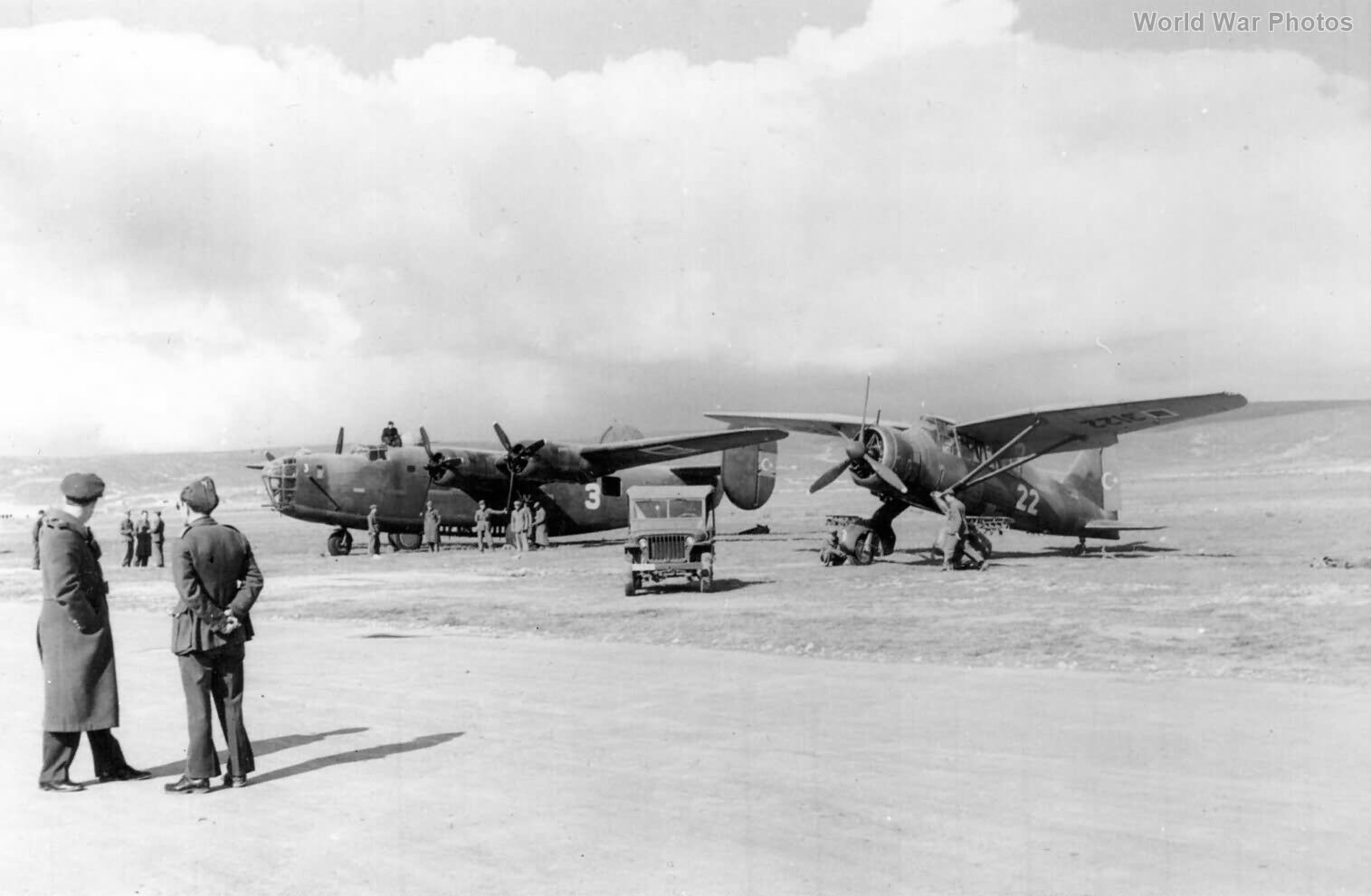A significant number of B-24 heavy bombers sustained damage during aerial assaults on the Ploiești oil refineries and were subsequently forced to land in Turkey. Four B-24Ds, part of the experimental Halverson Project, were interned in Turkey following the initial raid on June 12, 1942 (41-11597 Blue Goose 41-11596 Brooklyn Rambler; 41-11609 Little Eva; 41-11622 Town Hall). An additional eight aircraft were grounded there after a subsequent low-level attack on August 1, 1943 (42-40312 Aire Lobo (98th BG/345th BS); 42-40777 Flossie Flirt (44th BG/66th BS); 42-40744 Heaven Can Wait (389th BG/565th BS); 42-49544 Hitler’s Hearse (389th BG/567th BS); 42-40267 Horse Fly (44th BG/67th BS); 41-23754 Little Lady (93rd BG/409th BS); 42-49608 Vulgar Virgin (93rd BG/328th BS); 41-24297 War Maid (376th BG/512th BS)).
One particular B-24D, the “Brooklyn Rambler,” captured intact, became a focal point of unusual circumstances. The Turkish Air Force utilized the aircraft and its American crew for pilot training. However, a daring escape by the American crew to Cyprus resulted in a diplomatic crisis. Despite strained relations, the bomber was eventually returned to American control following negotiations.
Turkey interned a total of 189 airmen and 22 aircraft, including B-24s and a US Navy aircraft lost at sea. While initially detained, the majority of airmen were repatriated or managed to escape with Turkish acquiescence. Unlike similar incidents in Portugal and Sweden, the B-24s in Turkey were reportedly provided to the Turkish government as a form of Lend-Lease without monetary compensation. Six of these aircraft were repaired and subsequently integrated into the Turkish Air Force, serving alongside captured German He 111 bombers until the late 1940s.
